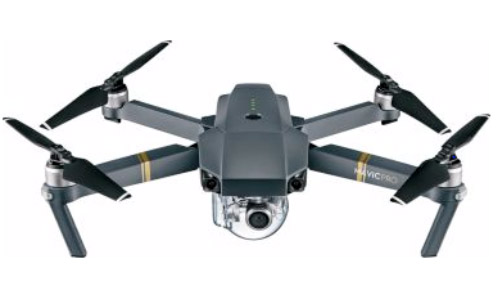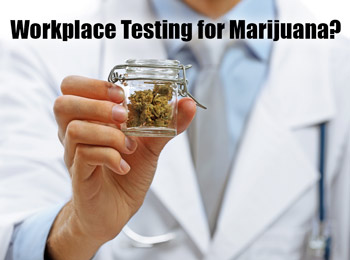Upcoming Events

Our offices will be closed on Tuesday, July 4, in observation and celebration of Independence Day, when ordinary men embarked upon an extraordinary course that embodied the principles of "life, liberty, and the pursuit of happiness."
Call us at
713-781-9040 to
learn ways to ensure that investigations add value to your case. We offer a complimentary, convenient one-hour presentation, in your office, of our continuing legal education (CLE) program, approved by the State Bar of Texas.
|
Next Edition Topics:
Fidel Garcia
: Tribute to a "Gentle Giant."
|
|
 |
|
In this edition of VantagePoints, we discuss an area of growing importance to the investigative profession - the drone, or as identified by the FAA, the UAS (unmanned aerial system). The UAS is being utilized with increasing frequency by government and private investigators; however, its use is becoming more complex as governments enact regulations intended to protect the safety and privacy of the public. This complicated atmosphere demands professionals who can properly interpret and apply all applicable laws.
Also presented is a discussion of the evolving environment regarding the recreational use of marijuana, and how this might impact company policies when employees choose to use the drug exclusively in a state where it is legal, and then return their workplace in a prohibiting state.
We appreciate your feedback regarding VantagePoints, and welcome ideas regarding topics of interest at [email protected]. We also hope you will mention our newsletter to your colleagues.
J.R.Skaggs
Founder, Owner, and Manager
|
Eye in the Sky: The increasing application of drones in investigations
 The unmanned aerial system (UAS) - commonly known as a drone - is becoming more common in investigations. Many police departments now deploy special squads that utilize the UAS for a variety of law enforcement purposes. Private investigators also commonly call on the UAS to document accident scenes, search for missing persons, conduct security surveys, and for use in surveillance operations.
The commercial use of the UAS, however, requires licensing, insurance, and negotiation of an often confusing maze of federal, state, and local regulations in order to be in compliance. This includes any use by a private investigator. In Texas and five other states, it is illegal for private individuals to use an unmanned aircraft to conduct photographic surveillance.
The Texas Privacy Act of 2013 stipulates, "a person commits an offense if the person uses an unmanned aircraft to capture an image of an individual or privately owned real property in this state with the intent to conduct surveillance on the individual or property captured in the image." Violation constitutes a Class C misdemeanor, the lowest of criminal penalties, but the law allows for civil damages of $5000 per episode of image capture and $10,000 for each episode in which illegally obtained images are used.
Texas still allows for UAS documentation of felony crime and accident scenes, and search and rescue activities. It also permits capture and use of images of property obtained with the consent of the owner or person occupying it.
Whereas some investigators might be willing to improperly employ the UAS, especially for a "low-risk" task such as verifying the presence of a specific vehicle inside a restricted access community, a true professional would insist on use that strictly complies with applicable laws.
When you retain the professionals of ResultQuest®, rest assured that we will use drones only when legal and appropriate, and with the full knowledge and participation of the client. Call us at 713/781-9040 for helpful guidance.
|
Rocky Mountain High: The changing landscape in workplace testing for marijuana use
 Imagine a scenario in which one of your valued employees, located in a state where recreational marijuana use is illegal, suddenly tests positive for tetrahydrocannabinol, or THC - the intoxicant of marijuana, following a routine urinalysis conducted in accordance with company testing policy. When confronted, the employee admits that two weeks earlier, during a ski trip to Colorado, he legally purchased and consumed a marijuana-laced cookie on a single occasion and has not consumed the drug since. Furthermore, you have firsthand knowledge of the trip and he has documentation of the air fare, lodging, and the cookie purchase.
This is a scenario occurring in many companies across the nation. As the legality of marijuana continues to grow with more states voting every year to permit its recreational use, there are also increased opportunities for individuals to visit
from states where it is prohibited and use the drug without violating the law where it is being consumed.
The illustrated example might well play out under a company policy that stipulates termination of employees who are found to be in violation of a prohibition against "illegal substances." It begs the question, though, as to whether the use of marijuana in Colorado is a violation of policy. Research indicates that THC can remain in detectable quantities in the urine for weeks following a single use. A positive test does not necessarily mean the employee was under the present influence of marijuana.
Consequently, it is important to work with your company HR officer and legal counsel to develop policies that anticipate and adequately address, then publicize this potential issue before it occurs. You might save yourself the loss of a key employee - and possibly a costly lawsuit as well.
ResultQuest® specializes in investigations pertaining to employment. Call us at 713-781-9040 whenever you need forward thinking professionals to help you anticipate and avoid issues involving employees. It's Your Move - Make it Count.®
|
|
|